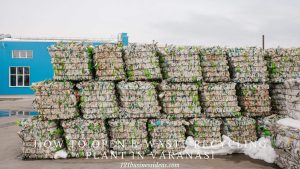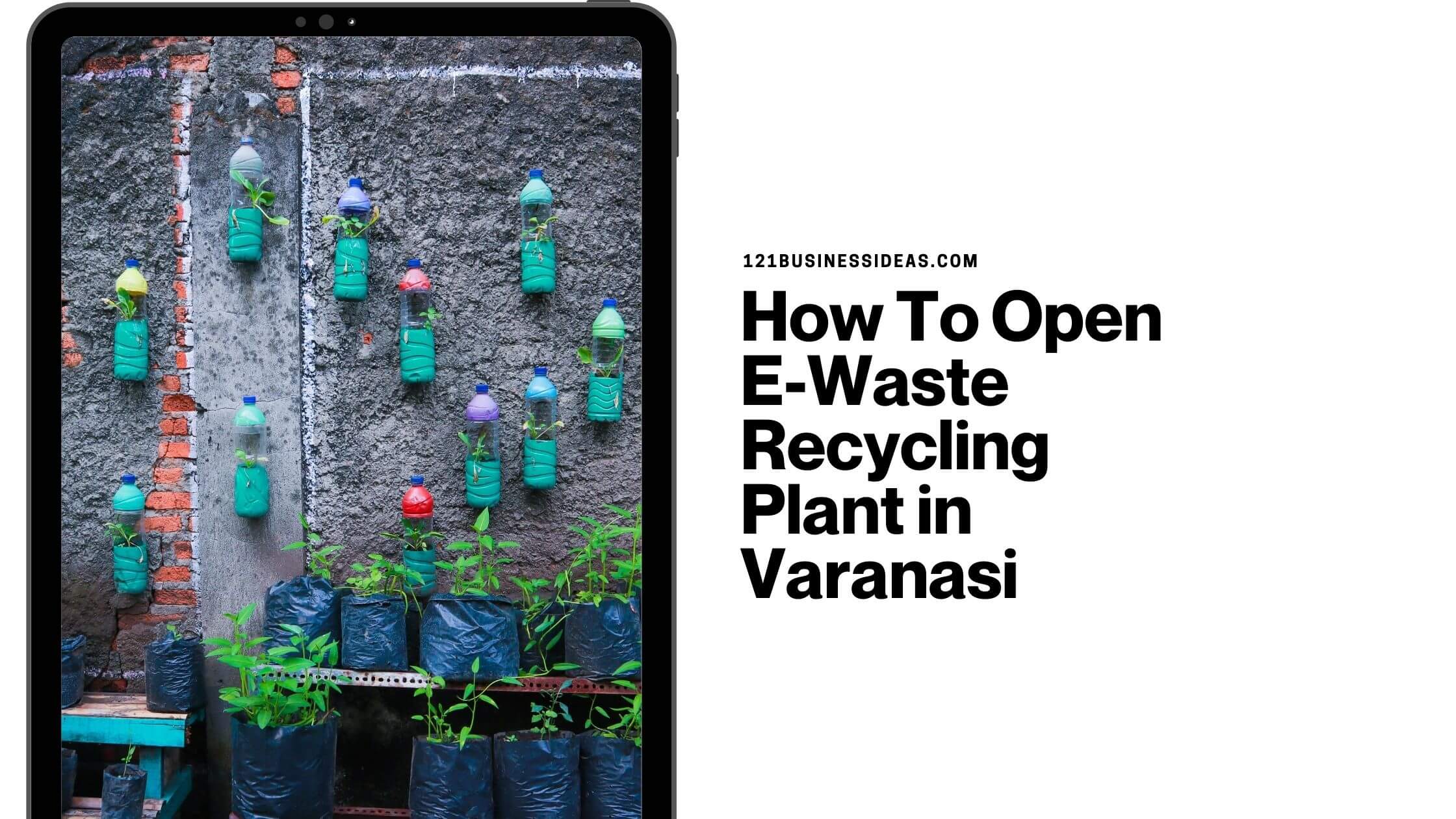How To Open E-Waste Recycling Plant in Varanasi
If you’re thinking of opening up a recycling plant, then it’s important to know how much energy and resources are consumed while extracting e-waste. This article will give you a detailed overview of How To Open E-Waste Recycling Plant in Varanasi to help you make your decision, as well as create all the necessary documents required for starting up an e-waste plant.
Table of Contents
What is e-waste?
E-waste is essentially any electronic device that does not function anymore. It can range from an old TV to a phone, to a computer. Electronic waste is often recycled and reused in the production of new devices, or it can be disposed of safely in landfills. In order to recycle electronic waste, you must first understand what it means to recycle this type of material, which is why we have created a blog on e-waste recycling plants in Varanasi
One of the most common benefits of recycling e-waste is that it can help to prevent the release of harmful chemicals into the environment. When an old TV or a computer is recycled, it helps to reduce the number of toxic substances going into landfills. There are also laws in place that require electronics manufacturers to pay for recycling their products. If they don’t, they may be fined by government agencies and taken to court!
What is a recycling plant?
A recycling plant is a place where unwanted materials are collected and their components are processed to produce new raw materials. This is done in many ways such as giving recycled material to various industries, converting it into energy, or turning it into new products that can be used by people. These plants are managed by governments, companies, and non-profit organizations. The most common form of recycling in the world is what is called collection and transportation which includes waste collection services (such as dump or transfer stations) and managing materials at the point of generation.
Why recycle? Recycling reduces our dependence on foreign sources of supply while reducing some environmental impacts such as landfills and pollution from discarded materials.
Recycling can also save money. A study by the National Recycling Coalition and Environment America showed that the average household saves $350 a year by recycling recyclables. In addition, recycling one ton of waste saves 8-19 barrels of oil or 427-852 gallons of natural gas (depending on whether the material is burned for energy). Recycling is essential for nearly every type of product we use.
How To Open E-Waste Recycling Plant in Varanasi
To start a recycling plant, the company needs to make sure that they have the proper equipment to do it. The first thing is a dumpster. It has to be large enough for all of the recyclable materials that are collected, so it should also be able to hold 100 cubic yards of debris at a time. The next item on the list would be recycling bins. They have to have lids, handles, and labels so consumers know what goes in them. These bins are necessary because they need to be able to stack neatly when not in use.
To open a recycling plant, it is important to have the right equipment. For this reason, there are many e-waste recycling plants in India. However, it can be difficult to find the right equipment, and hassles such as licensing fees can make the process more difficult than it needs to be.
To open an e-waste recycling plant in Varanasi, the local government and the company need to come up with a plan. The company will get some of the raw materials and hire local people to do the work. They can then sell their product to companies that need it.
The “Mercury” plant is the first in the country, and it is set to become a model for other states and countries. The Mercury plant will recycle used smartphones, computers, televisions, refrigerators, air conditioners, electric stoves, washing machines, and dishwashers.

Equipment needed in the process of running a recycling plant
A recycling plant needs plenty of equipment. While some of the items may be used in other parts of the process, many others are rare and used specifically for recycling. Items such as a cement mixer, truck tipper, conveyor belts, drum sorter, grain shovels and screens, dust collectors, and loaders are among the needed equipment.
A recycling plant is a facility that collects and processes waste materials into raw materials of value with the help of machinery. The main requirement of running a recycling plant is to ensure that the machines are maintained at their best working condition so as to run continuously throughout the day.
This can be achieved by hiring a professional repair service provider that specializes in maintaining equipment during peak seasons. They will not only maintain the machines but will also present professional services like machine inspections, breakdowns and repairs, maintenance planning, and training programs for staff members. As a result, the facility will avoid regular breakdowns and maintain its efficient operation.
Junk Removal Service Company: If you are still unsure of the best way to dispose of your junk, then Junk Removal Service is a good Junk removal service company that will get rid of all types of junk that are not safe for you to keep at home. They do this by taking away any type of junk that you cannot find a place to put in your house. This includes furniture and other household items.
The steps
In order to start their business in Varanasi, the team needed to get a license from the Uttar Pradesh e-waste management committee. After they were approved by the committee, they needed to follow strict guidelines and set up their own plant in Varanasi the first step was to plan the plant layout where different components could be reassembled and recycled into new products. The second step was to identify their sources for materials such as electronic circuit boards, consumer batteries, and scrap metal.
Next, they had to find a location that would best suit their needs. Finally, they started looking for suppliers who were willing to work with them at affordable rates. They were sure that the supplier would be able to supply the required materials. However, they were disappointed when they found out that the price per tonne was much higher than what they were paying in Bengaluru.
Varanasi e-waste management committee had cut down its funds because of low-cost imports from China and Malaysia. So, instead of purchasing materials locally, they started reusing scrap metal and scrap plastic collected from Varanasi’s weekly markets at a rate lower than what they were paying earlier.
“We are trying to collect the e-waste from our own people, so we are going to rope in some hawkers from the markets and bring them under the umbrella of the committee,” says Mr. Muralidhar who is also a member of Karnataka State Plastic Waste Management Board (KSPWMB), Varanasi. He hopes that if this is done, it would help create awareness among the people about waste segregation and recycling.
Conclusion
The new plant, which is spread across an area of 500 sq. meters, was opened in Varanasi, Uttar Pradesh on Tuesday. The plant will create employment opportunities for the people of the city and help to save a lot of environmental resources.






